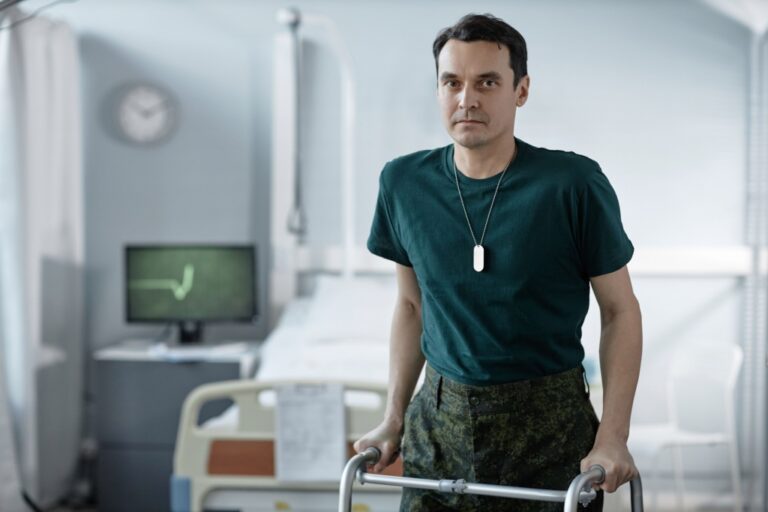Understanding Benefits and IU Disability
For veterans whose service-connected disabilities significantly hinder their ability to work, VA Unemployability (IU), also known as Total Disability based on Individual Unemployability (TDIU), offers a critical lifeline.
First What is IU?
VA Unemployability (IU) is a program for veterans with service-connected disabilities that limits their ability to work full-time. Even if their combined disability rating isn’t 100%, IU recognizes the real-world impact on their earning potential.
Here’s the benefit: IU grants veterans disability compensation at the 100% rate, offering significant financial security. This translates to better healthcare access, potentially pursuing education or training, and a reduced burden on managing disabilities.
Think of it as a lifeline. IU allows veterans to focus on their well-being without constant worry about finances or losing a job. It’s not a handout, but recognition of the sacrifices veterans made and the ongoing challenges they face.

What Benefits Come with IU?
Financial Security: The most significant benefit of VA Unemployability is the financial boost it provides. Veterans with IU receive disability compensation at the 100% disability rate. As of December 2023, this translates to $3,737.85 per month for a single veteran. This increased compensation can significantly improve a veteran’s financial security, allowing them to cover basic necessities, manage medical expenses, and potentially pursue further education or training. For veterans with dependents, additional monthly compensation is available, further strengthening their financial well-being.
Improved Quality of Life: Financial security is just one piece of the puzzle. VA Unemployability can significantly improve a veteran’s overall quality of life. With the financial pressure of maintaining employment lessened, veterans can focus on managing their disabilities and overall health. This can lead to a reduction in stress and anxiety, allowing them to pursue activities that improve their physical and mental well-being. Veterans with IU may be able to dedicate more time to physical therapy, mental health treatment, or simply activities they enjoy but couldn’t manage while working full-time.
Access to VA Healthcare: Veterans with IU maintain full access to VA healthcare, a vast network of hospitals and clinics offering comprehensive medical, dental, and mental health services. This access is crucial for veterans managing service-connected disabilities. The financial security provided by IU can also alleviate concerns about affording any necessary co-pays or medications not covered by VA healthcare.
Education and Training Opportunities: IU can open doors for veterans seeking education or training opportunities. With the financial pressure of full-time employment reduced, veterans can pursue academic degrees, vocational certifications, or other forms of training to enhance their skillsets and potentially transition into new careers that better accommodate their disabilities. This investment in their future can lead to greater independence and a sense of purpose.
Employment Flexibility: While IU recognizes a veteran’s limitations, it doesn’t necessarily preclude them from working entirely. Veterans with IU can choose to engage in part-time work or pursue self-employment ventures that fit their capabilities and limitations. This flexibility allows veterans to maintain a sense of accomplishment and contribute to the workforce on their own terms.
Peace of Mind: Perhaps the most underrated benefit of VA Unemployability is the peace of mind it offers. Veterans with IU know they have a financial safety net in place, allowing them to focus on their health and well-being without the constant worry of losing their job or facing financial hardship. This peace of mind can be transformative, allowing veterans to live more fulfilling lives.
Additional Considerations:
- Two Paths to IU: There are two ways to qualify for IU: schedular and extraschedular. Schedular IU requires a combined service-connected disability rating of at least 70%, with at least one disability rated at 60% or more. Extraschedular IU offers more flexibility, considering a veteran’s overall employability in light of their service-connected disabilities, even if their combined rating falls below 70%.
- Maintaining IU: Maintaining IU status requires periodic evaluations by the VA to ensure eligibility continues to be met. However, veterans who maintain a stable condition typically face minimal disruption in their benefits.
- Seeking Help: The application process for VA Unemployability can be complex. Veterans are encouraged to seek assistance from Veterans Service Organizations (VSOs) or qualified veterans’ benefits attorneys to navigate the process effectively.
Obtaining IU as a Veteran
There isn’t necessarily an “easy” way to get VA Unemployability (IU). The process involves gathering evidence and navigating VA procedures, but there are steps to make it smoother for veterans:
- Seek Help: VSOs (Veterans Service Organizations) like the American Legion or DAV (Disabled American Veterans) offer free assistance with VA claims, including IU. For many, seeking the help of a VA benefits attorney is a necessary step in ultimately being approved for benefits. Having an attorney involved has proven to increase the chances of an approval – especially if a case has already been initially denied.
- Gather Evidence: Building a strong case requires solid evidence. This includes medical records documenting your service-connected disabilities, statements from doctors or therapists detailing how your disabilities limit your ability to work, and potentially employer statements or work history demonstrating your struggle to maintain employment.
- Understand the Paths: There are two paths to IU: schedular and extraschedular. Schedular has clear rating requirements, while extraschedular offers more flexibility but requires a compelling case demonstrating your unemployability despite a lower combined disability rating. A VSO can help you determine the best path for your situation.
- Be Patient: The VA claims process can take time. Stay organized, respond promptly to requests for information, and don’t hesitate to reach out to your VSO for help if you face delays or denials.
VA Unemployability is a critical program that recognizes the unique challenges faced by veterans whose service-connected disabilities significantly limit their ability to work. The financial security, improved quality of life, access to healthcare, and flexibility it offers empower veterans to thrive despite their limitations. If you’re a veteran struggling with service-connected disabilities and limited employment opportunities, explore VA Unemployability. It might be the lifeline you need.







